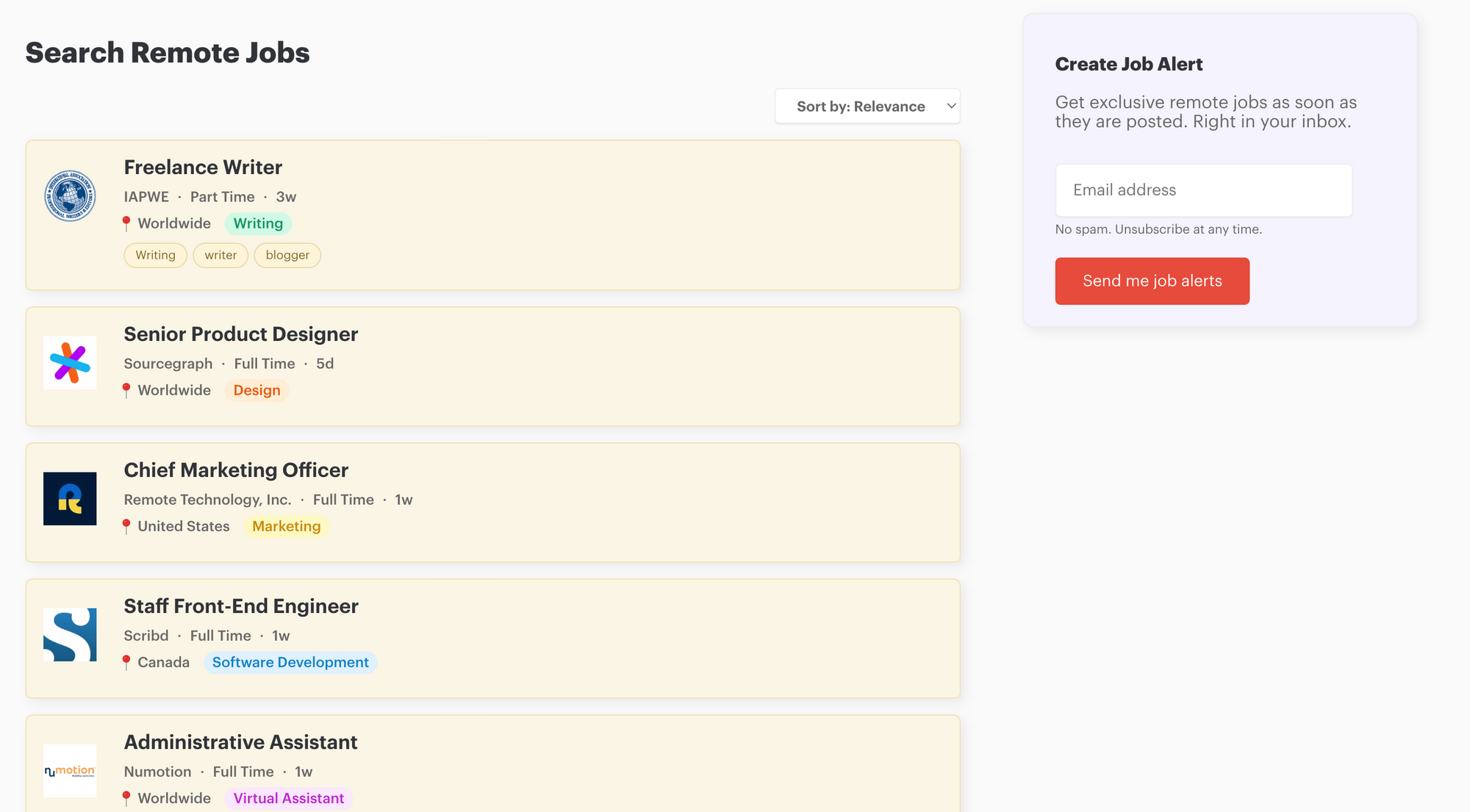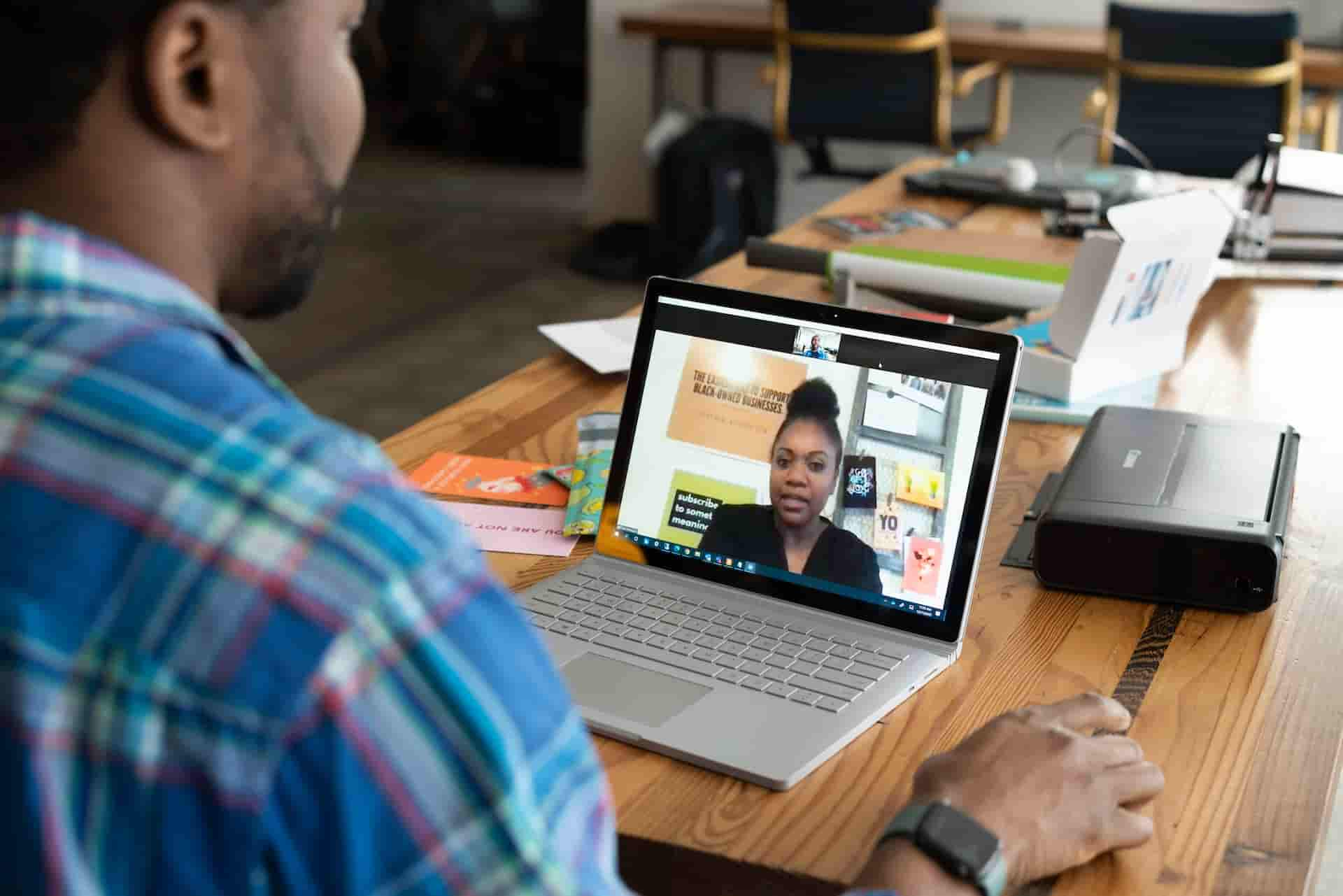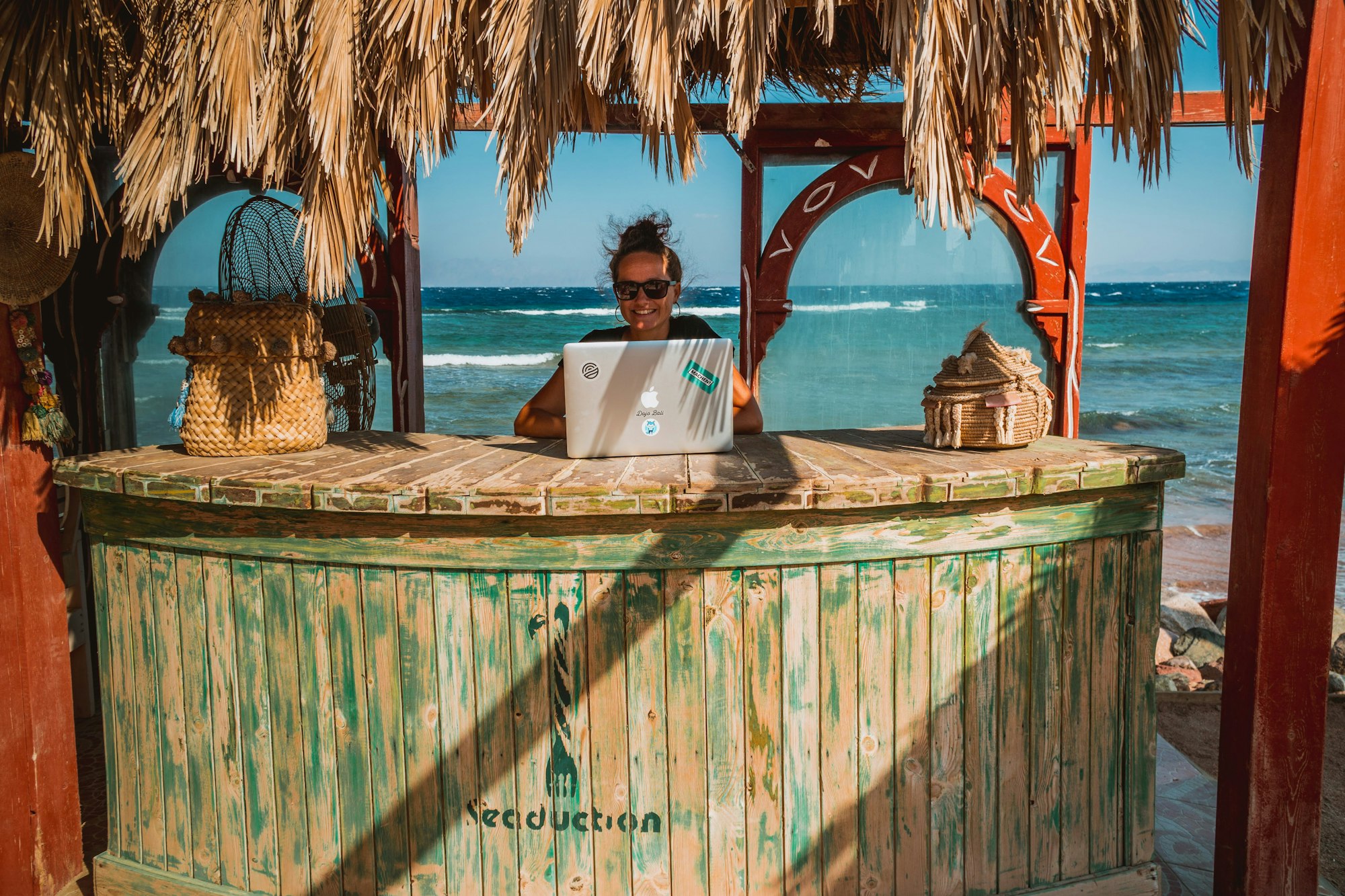In recent years, the rise of technology and the flexibility it offers has led to the birth of a new kind of professional: the digital nomad. These individuals harness the power of the internet to work from anywhere in the world, blending travel and work in a harmonious balance. But is this lifestyle right for everyone? Let's explore the journey of becoming a digital nomad and weigh the pros and cons.
What is a Digital Nomad?
At its core, a digital nomad is someone who works remotely, often from different countries or locations, relying on remote working tools and the internet. They're not bound to a physical office and have the freedom to design their work schedule around their travel adventures.
Digital Nomad vs. Location Independent: Understanding the Difference
A digital nomad is an individual who works remotely, often online, and chooses to travel regularly, moving from one place to another. They leverage digital technologies to perform their work and earn a living while exploring different parts of the world.
Location independence refers to the ability to work from anywhere without being tied to a specific physical location. While this often implies mobility, it doesn't necessarily mean constant travel. A location-independent individual might choose to stay in one place for an extended period or even indefinitely.
How Do You Become a Digital Nomad?
1. Assess Your Skills and Job
Before diving into the nomadic lifestyle, evaluate if your current job or skills are conducive to remote work. Remote jobs in content writing, digital marketing, programming, and consulting are typically more adaptable to this lifestyle.

2. Embrace Minimalism
Being constantly on the move means you'll need to downsize your belongings. Invest in multi-functional items and digital solutions to minimize the physical clutter.
3. Plan Financially
Ensure you have a stable income source and savings to support your travels. Consider setting up an emergency fund and familiarizing yourself with the cost of living in your chosen destinations.
4. Choose Your First Destination
Research potential destinations based on factors like internet reliability, safety, cost of living, and cultural experiences. Websites like Nomad List can be a great resource.

5. Secure Reliable Tech Tools
Invest in a good laptop, smartphone, and other essential tech tools. Ensure you have backup solutions, such as external hard drives or cloud storage. A reliable VPN is also crucial for online security.
6. Set Up Remote Work Arrangements
If you're currently employed, discuss the possibility of remote work with your employer. If you're freelancing or starting a new job, platforms like Upwork, Freelancer, or DailyRemote can help you secure remote gigs.

7. Plan Your Accommodations
Consider options like co-living spaces, Airbnb, or local rentals. Many cities also offer co-working spaces, which can be excellent for networking and maintaining productivity.
8. Stay Organized and Productive
Adopt digital tools like Trello, Asana, or Google Calendar to manage your tasks and schedules. Setting a daily routine can also help maintain a balance between work and exploration.
9. Engage with the Digital Nomad Community
Join local meetups, attend workshops, or participate in online remote working communities. Engaging with fellow nomads can provide valuable insights, friendships, and potential work collaborations.

10. Continuously Learn and Adapt
The digital nomad lifestyle is ever-evolving. Stay updated with the latest tools, remote work trends, and best practices. Be open to adapting and learning from your experiences.
Pros of Being a Digital Nomad
- Unparalleled Freedom: Digital nomads have the flexibility to choose their work hours and locations, allowing them to balance work with leisure effectively.
- Rich Experiences: Traveling to new destinations provides opportunities to immerse oneself in diverse cultures, cuisines, and traditions, leading to personal growth and a broader world perspective.
- Networking Opportunities: The growing digital nomad community means that there are numerous opportunities to meet like-minded individuals, leading to both personal and professional collaborations.
- Reduced Living Costs: Depending on the destinations chosen, some digital nomads can significantly reduce their living expenses by staying in countries with a lower cost of living compared to their home country.
- Personal Growth: The challenges and experiences faced while traveling and working can lead to significant personal development and resilience.
Cons of Being a Digital Nomad
- Unpredictable Internet: Not all destinations have reliable or fast internet, which can be a significant challenge for work that requires a stable online connection.
- Loneliness: Being on the move can sometimes lead to feelings of isolation, especially if one is constantly changing locations and leaving behind newfound friends.
- Work-Life Balance: The blurred lines between vacation and work can make it hard to set boundaries, potentially leading to burnout.
- Healthcare Concerns: Constantly changing locations can make it challenging to have consistent healthcare, especially in countries without adequate medical facilities.
- Visa and Regulation Issues: Staying in foreign countries often means navigating visa regulations, which can sometimes be complex and restrictive.
Popular Remote Jobs for Digital Nomads
Here is a list of the popular remote jobs for digital nomads to do while travelling. These jobs are just a glimpse of the myriad of opportunities available for digital nomads. As technology continues to evolve, the list of jobs suitable for a nomadic lifestyle will likely expand even further.
1. Freelance Writer or Blogger
Writing content for various platforms, websites, or publications. This could include blog posts, articles, or even books. Strong writing skills, research abilities, and proficiency in grammar and style is required to work remotely as a writer.
2. Graphic Designer
Designing visual content such as logos, banners, brochures, and websites. Proficiency in design tools like Adobe Illustrator or Photoshop and a keen eye for aesthetics is enough to works as a graphic designer while travelling as a digital nomad.

3. Web Developer or Programmer
Building and maintaining websites or software applications. Knowledge of programming languages like HTML, CSS, JavaScript, Python, or Ruby on Rails is a must to work remotely as a software developer while travelling as a digital nomad.
4. Digital Marketing Specialist
Promoting brands or products online through SEO, PPC campaigns, social media, or email marketing. Familiarity with digital marketing tools, SEO best practices, and analytics platforms is required to works as a marketing specialist while travelling as a digital nomad.
5. Online Tutor or E-Learning Expert
Teaching subjects, languages, or skills through online platforms. Expertise in a particular subject and strong communication skills is required to works as a online teacher while travelling as a digital nomad.
6. E-commerce or Dropshipping Entrepreneur
Running an online store, often without holding inventory (dropshipping). Understanding of e-commerce platforms, supply chain management, and marketing is required to work remotely as a digital nomad.
7. Virtual Assistant
Providing administrative support to businesses or entrepreneurs, including tasks like email management, scheduling, or data entry. Organizational skills, proficiency in tools like Microsoft Office or Google Workspace, and good communication abilities is enough to works as a virtual assistant while travelling as a digital nomad.

8. Consultant or Coach
Offering specialized advice in areas like business, health, or personal development. Expertise in a particular field and the ability to guide or mentor others is enough to works as a consultant while travelling as a digital nomad.
9. Data Entry Agent
A Data Entry Agent is responsible for inputting data into digital databases, maintaining accurate records of valuable company information, and ensuring data remains consistent, secure, and up-to-date. As long as you have a computer and a stable internet connection, data entry tasks can be done from anywhere.
10. Content Creator (YouTuber, Podcaster, Influencer)
Creating and monetizing content on platforms like YouTube, Instagram, or podcasts. Creativity, understanding of the chosen platform's algorithms, and marketing skills is enough to works as a content creater while travelling as a digital nomad.
Tips for Living as a Digital Nomad
Adapting to the digital nomad lifestyle requires a blend of preparation, flexibility, and openness to new experiences. Here are some essential tips to make the journey smoother and more enjoyable:
1. Research Before You Go
Before settling in a new location, research the area for essentials: internet connectivity, safety, local customs, and cost of living. Platforms like Nomad List can provide insights for cities best for working remotely.
2. Stay Connected
Invest in a local SIM card or a global roaming solution to ensure you're always connected. A portable Wi-Fi hotspot can also be a lifesaver in areas with spotty connectivity to use tools like Zoom and Slack.

3. Manage Your Time Wisely
Time zone differences can be challenging. Use tools like World Time Buddy to synchronize with clients or teams in different regions. Set clear work hours to maintain a work-life balance.
4. Diversify Your Income Streams
Relying on a single source of income can be risky. Consider diversifying by taking on multiple freelance gigs, starting a side business, or investing in passive income sources.
5. Prioritize Health and Well-being
Frequent travel can take a toll on your health. Prioritize regular exercise, maintain a balanced diet, and ensure you have travel or health insurance that covers international care.

6. Pack Light but Smart
Overpacking can become a burden. Pack versatile clothing, essential tech gear, and remember that most things can be purchased locally if needed.
7. Build a Community
Join digital nomad groups, attend local meetups, or work from co-working spaces. Building connections can combat feelings of loneliness and provide networking opportunities.
8. Stay Updated on Visa Regulations
Each country has its own visa regulations. Stay informed to avoid overstaying or violating visa terms. Some countries even offer special visas for digital nomads.
9. Maintain a Routine
While spontaneity is a perk of the nomadic lifestyle, maintaining a daily routine can help anchor your days and boost productivity.

10. Always Have a Backup Plan
Whether it's tech issues, sudden travel restrictions, or personal emergencies, always have a contingency plan. Backup your work, keep emergency contacts handy, and save for unforeseen expenses.
Conclusion
The digital nomad lifestyle is an enticing proposition for many, offering unparalleled freedom and a unique work-life experience. However, like all lifestyles, it comes with its set of challenges.
By understanding the pros and cons, planning thoroughly, and staying informed, you can embark on this exciting journey and make the most of the digital era. Whether you're a remote worker or an adventurous soul, the world awaits.
If you are looking for remote jobs, you can search on job boards focused on remote jobs for digital nomads such as DailyRemote. Searching for a remote jobs can be a challenging experience, but it is important to maintain a positive outlook and go over our guide on how to find a remote job and join like-minded people in our LinkedIn and Facebook community.

